What is acquired keratoderma?
Acquired keratoderma is a palmoplantar keratoderma that is NOT inherited as primary genetic condition. It can occur as part of a generalized skin condition (some of which can be inherited) or as a result of another disease.
How does acquired keratoderma present?
Acquired palmoplantar keratoderma is more likely to present in adulthood (compared to inherited keratoderma that usually occurs in childhood). It presents with thickening of the skin of the palms and / or soles of the feet that may be diffuse (involving most palms and soles) or focal (located mainly to pressure zones).
Acquired keratoderma
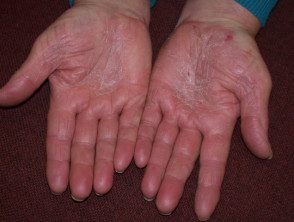
Psoriasis
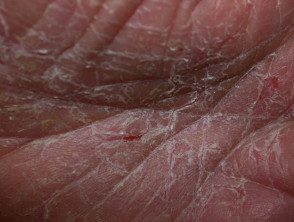
Psoriasis
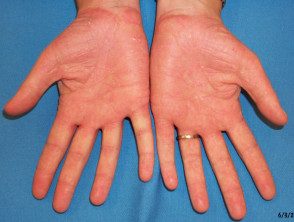
Psoriasis
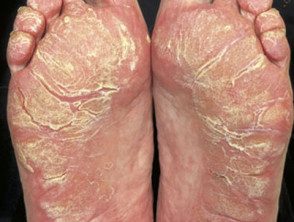
Chronic eczema
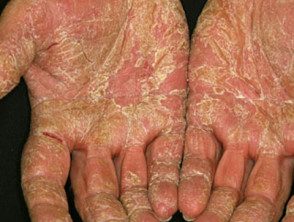
Chronic eczema
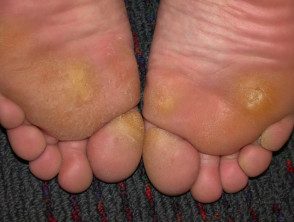
Focal keratoderma
What Causes Acquired Keratoderma?
Inflammatory skin conditions
- Psoriasis
- Dermatitis (eczema)
- Lupus erythematosus
- Lichen planus
- Pityriasis rubris pilaris
Infections
- Reiter syndrome
- Dermatophyte fungi infection (tub)
- Syphilis
- Scabies with scab
-
Extensive viral warts (usually in immunosuppressed patients)
Circulatory problems
- Lymphedema
Secondary to inherited conditions that generally cannot lead to keratoderma
- Ichthyosis
- Ectodermal dysplasia
- Epidermolysis bullosa
- Erythrokeratoderma
Medications and toxins
- Iodine
- Lithium
- Tegafur
- Glucan
- Halogenated herbicides
- Arsenic
- Dioxin
- Chemotherapeutic agents used in Cancer treatment
-
Targeted cancer therapy for BRAF+ melanoma with vemurafenib or dabrafenib
Internal disease
-
Myxedema (thyroid disease)
-
Internal malignancy (cancer) has been associated with the development of acquired keratoderma
Diverse
- Keratoderma climacterum is a keratoderma or hyperkeratotic dermatitis of the hand that usually develops in middle-aged women. This has been suggested to be related to menopause.
Treatment of acquired keratoderma.
The following treatments soften thickened skin and make it less noticeable.
- Emollients
- Keratolytic agents (for example, 6% of salicylic acid in 70% of propylene glycol)
- Current retinoids
- Topical vitamin D ointment (calcipotriol)
-
Oral retinoids (acitretin)
